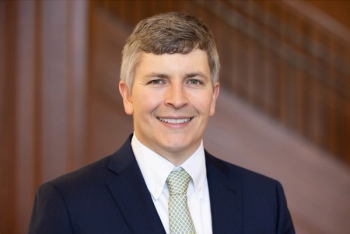
- Pharmaceutical Executive-07-01-2019
- Volume 39
- Issue 7
Creating an ‘Unbossed’ Environment in the Workplace
How one company’s cultural transformation aims to strengthen and empower its talent base.
How one drugmaker’s cultural transformation aims to strengthen and empower its talent base
Novartis executives say the big pharma giant is strategically building a focused medicines company built on advanced therapy platforms and data science-but to succeed in this plan, it is focusing on its employees, or “associates” as they are referred to across the organization. Relatively new CEO Vas Narasimhan, who took the helm at Novartis in February 2018, has begun a cultural transformation where, according to the company, the associate is at the center of change. One aspect of this approach is to unleash the power of Novartis’s talent base and establish an environment where associates are leveraging their skills and passion to work-in hopes of cultivating a reimagined approach to medicine and biopharmaceutical innovation.
Pharm Exec spoke recently with Daniel Manea, Novartis’s US head of people and organization (Manea oversees over 14,000 Novartis associates), to discuss how his team is developing a next-generation workforce by creating an “unbossed” environment where the culture determines the company’s performance and its ability to better serve patients.
PE: Novartis CEO Vas Narasimhan has spoken about a culture change-what does this mean?
MANEA: Our CEO and the entire executive committee, as well as our US leadership, have been critical in driving this change across the organization. We are building a culture of learners that breeds innovation and experimentation both within and beyond science. The objective of our culture change is to unleash the
power of our people. To do this, we need to ensure that all associates are acknowledged, respected, and their voices heard. Associates need to have a sense of belonging. We know our people are our biggest asset and we want to create an environment where they can bring their best ideas. How do we do this?
Firstly, we want everyone at Novartis to feel inspired by our purpose to reimagine medicine and to feel empowered every day.
We also want them to be energized by continuous learning and self-improvement to achieve their personal and professional goals and to create meaningful impact through collaboration and teamwork. We need associates who are externally focused and constantly curious about new ideas that can produce better outcomes for patients, physicians, customers, and healthcare systems.
Finally, we need leaders who serve their teams, enabling them to reach their full potential, take smart risks, and learn from failures. We are striving for a culture of inspiring leaders, curious minds, and unbossed associates.
PE: What does an “unbossed” culture mean?
MANEA: To help improve our workplace, unbossed is about creating clarity and accountability. It is to empower and support others and to remove obstacles. For us, this is about flipping the pyramid. This means that we want to create a culture in which leaders serve their people from the bottom up, by setting clear goals, removing obstacles, and empowering their teams, rather than sticking to a hierarchical, top-down structure. At the heart of this is that you do not have a team in support of a boss; you have a boss in support of a team. Our associates are excited about this new way of working.
Culture change is a business imperative, it drives performance, and enables us to attract and retain the best talent. We are in the business of discovery, and we will deliver more for society and patients if we break down barriers to innovation, shift away from a perfectionist culture, and unleash the power of our people. As
a leader, I believe it is important to provide space and align aspiration.
PE: Any obstacles to implementing this change?
MANEA: We have over 14,000 associates here in the US, so effecting change across the size and scale of Novartis takes time and is a concerted effort. It starts with leaders, rolling out a new and fundamentally different approach to leadership takes significant time and effort, and this is a major focus for us.
We are privileged at Novartis to have a large number of leaders, which hold a wealth of in-house knowledge and experience. However, this can also bring challenges because these leaders need to learn to lead differently as we seek to transform our culture.
Personal accountability is a big requirement for successful culture change and it takes time for everyone to understand what is expected of them and to practice the new behaviors required.
PE: How does the company develop and manage talent?
MANEA: Talent is at the heart of Novartis. To develop and manage talent, we foster a culture of curiosity and experimentation. Supporting our employees in lifelong learning and professional development is a priority for our associates and we are making significant investment in this area. Globally, our associates now have free access to 3,000-plus courses via Coursera, through which associates can earn certificates from 190 top universities worldwide.
They also have access to LinkedIn Learning, providing 14,000 courses in seven languages in short format, bite-sized learning covering hot topics in business and IT/digital from leading experts.
We have several developmental programs to support leadership growth.
In addition, we have programs where we are able to share the culture of Novartis externally and do our part to help shape a better, more inclusive society by inspiring the next generation of thought leaders, risk takers, and problem solvers. For example, recently we hosted over 160 middle and high school students from 53 schools in New Jersey. Over 120 associates from our East Hanover headquarters and the field force served as mentors. Our mentors provided insights and guidance to the students on school and career opportunities.
PE: New technologies require different talent-what are you doing to appeal to a new generation and new talent pool?
MANEA: We are on our way to becoming a data- and digital- driven organization; scientific advancements are unfolding faster than ever before, and the emerging workforce has vastly different expectations on how work gets done in the 21st century. We need to be constantly transforming to meet the demands and to set Novartis up to thrive and deliver transformative medicines for decades to come.
We are also responding to the voice of our associates (our Generate Action initiative) and seeking to create a sustainable work environment that promotes a healthy work-life balance (called Energized for Life), allowing our people to fulfill their goals in their personal and professional lives. Mentoring programs are important to appeal to new talent. For example, we mentor students from marginalized areas, where associates mentor young girls to encourage their interest in STEM.
PE: How do you foster diversity across the organization?
MANEA: We want to create a diverse and inclusive work environment embracing all forms of diversity so that our people can bring their best selves to work every day. To this end, we have created a diversity and inclusion (D&I) strategy to reflect business priorities, implement Novartis-wide initiatives, and increase internal and external visibility.
We were the first pharma company to support the UN Human Rights global LGBTI business standards to stand up to fair treatment and equal rights for LGBTI people, and have ranked as one of the top companies for LGBTQ inclusion by the Human Rights Campaign’s Corporate Equality Index.
On gender diversity, we currently have 48% women in management (35% of executives) and have committed to achieving gender equity in management by 2023. We are proud to be recognized as a Military
Friendly Company by Victory Media/GI Jobs, and our representation of associates who self-identify as individuals with disabilities is nearly 3%.
We also promote diversity by encouraging flexibility and flexible work schedules so that our associates can balance their personal and professional needs. Our benefit offerings help to attract and retain a diverse workforce, such as our on-site childcare center, unlimited sick leave, generous parental leave, tuition reimbursement, and emphasis on professional development.
I am particularly proud of our Employee Resource Groups (ERGs) in the US, which are voluntary groups of employees with shared interests and experiences that help promote organizational values and behaviors. Each ERG has an annual budget and has the opportunity for additional funding to support non-profits aligned with their individual missions.
GenNext (GN), for example, provides a support network for Novartis associates early in their career, facilitates their career development, and develops relationships across departments and generations.
The African Ancestry & Cultural Exchange (AACE) helps build an environment that fosters professional growth, leadership opportunities, networking, and mentoring.
And CapABLE aspires to empower people with visible and invisible disabilities by creating awareness and fostering a culture of understanding, inclusion, and belonging.
So for us, diversity is not just about doing the right thing; it is fundamental in achieving our purpose of reimagining medicine, as it allows us to tap into a broad range of experiences and backgrounds, to be constantly open to new ideas and ways of thinking.
Lisa Henderson is Pharm Exec’s Editor-in-Chief. She can be reached at
Articles in this issue
over 6 years ago
Proposed Rebates Rule Raises Tough Questionsover 6 years ago
Drug Formulary Decisions: Fixing a Broken Systemover 6 years ago
The Feasibility of Patient Insights Before Launchover 6 years ago
Compliance Disruptorsover 6 years ago
Asia’s Complex Compliance Landscapeover 6 years ago
European Pricing Talks: A lot of Smoke—or is it Fire?over 6 years ago
FDA Maps Pathway to More Accessible Biosimilarsover 6 years ago
Top Trends, Takeaways from DIAover 6 years ago
Pharma & Biotech: Financial Pulse-Check, Outlookover 6 years ago
Pricing in DTC: Adjusting to the New WorldNewsletter
Lead with insight with the Pharmaceutical Executive newsletter, featuring strategic analysis, leadership trends, and market intelligence for biopharma decision-makers.




